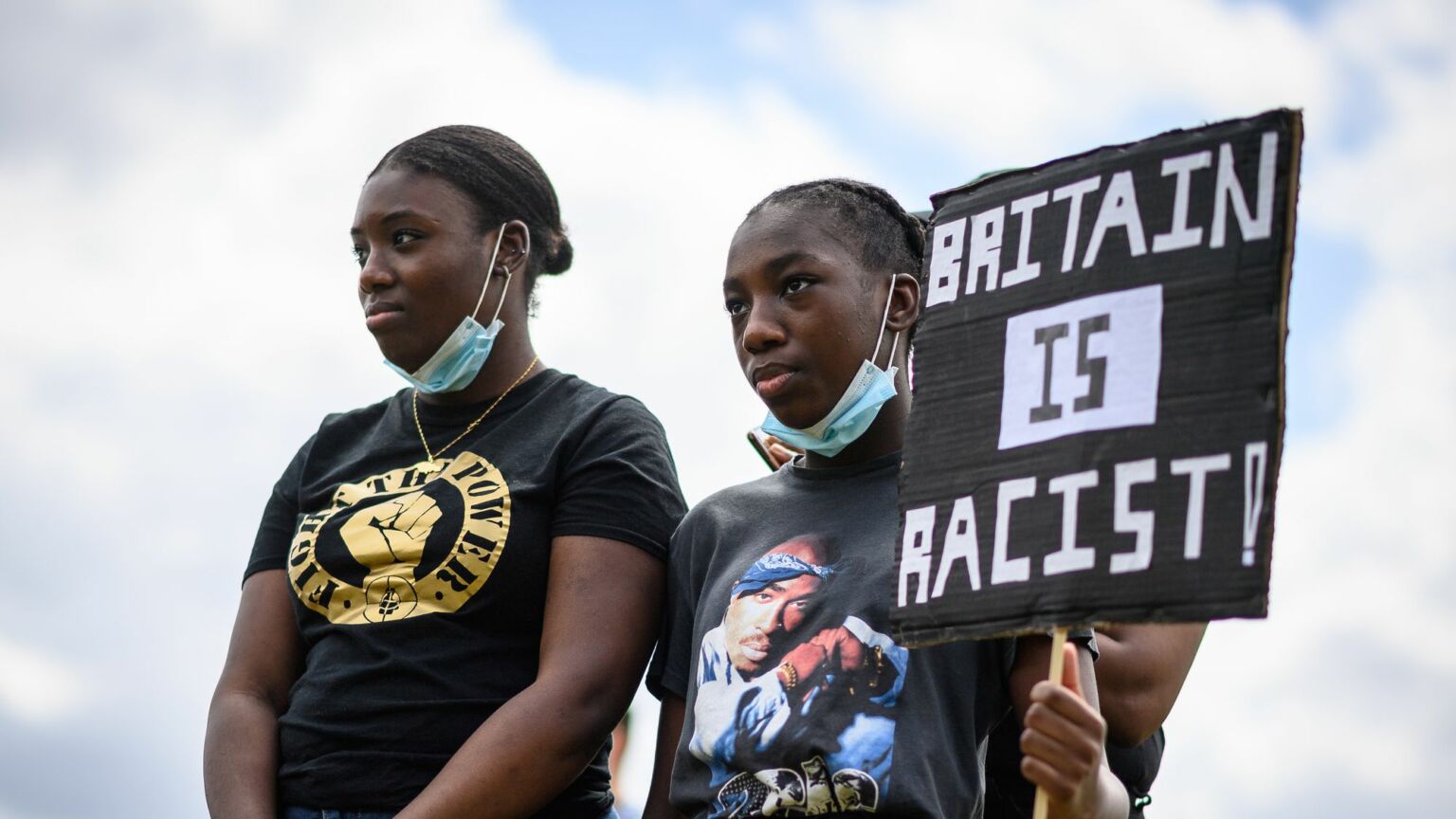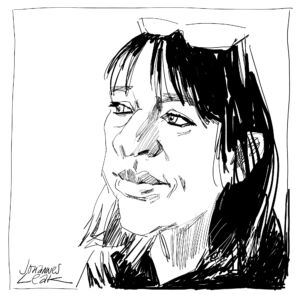The race grifters have had their day
It’s getting harder and harder to pretend that Britain is institutionally racist.

Want to read spiked ad-free? Become a spiked supporter.
Recently, I read the following in a Vogue interview with the bright and beautiful Big Brother presenter, AJ Odudu: ‘Someone asked me once what it was like being a black female coming up in the industry – I was like, “Oh my gosh, being black was not even the hardest thing”.’
AJ’s parents encouraged their daughter to pursue her dreams. But with her mother being a cleaner and her father a bus conductor, supporting her financially was impossible. ‘We just didn’t have the means’, she said. ‘The obstacle was geographical: how do I get from this corner of Blackburn to London, and then stay there? And that was just step one.’
The blunt and likeable Odudu was only saying in plain language what the best black and Asian British writers have been saying for a while now. Last year, we saw the publication of This is Not America by Tomiwa Owolade, Beyond Grievance: What the Left Gets Wrong About Ethnic Minorities by Rakib Ehsan and It’s Not About Whiteness, It’s About Wealth by Remi Adekoya. All reject the identity-politics narrative that would keep ethnic minorities as the patronised pets of the establishment. These books all point out that class, not race, is still the great decider of whether any child will grow up to fulfil their potential.
This month, veteran black British educationalist Tony Sewell published Black Success: The Surprising Truth. Sewell rejects the low expectations that are placed on young black kids, as well as the victimhood narrative that denies them agency and responsibility. Last month, there was the young black American writer Coleman Hughes’s book, The End of Race Politics: Arguments for a Colourblind America. It takes on the modern left’s fixation on race, which has distorted what it means to be anti-racist.
There’s a wonderful feeling, albeit rare, when the cool breeze of common sense wafts through the humidity of hysteria that passes for ‘progressive’ thinking these days. It’s especially good to be reminded that people of different races are not actually at each other’s throats, but all basically want the same things from life.
One of those things we all, generally, aspire to is to make our own way without being pitied. ‘I tried to see hardship as a stepping stone’, says young British dual-heritage entrepreneur Steven Bartlett, born in Botswana to a mother who left school at the age of seven, and who was himself expelled from school as a teenager. You don’t have to be Margaret Thatcher to conclude that such an attitude will lead not just to a greater chance of success, but also to a far greater chance of actual happiness (and of getting to write a bestseller called Happy Sexy Millionaire, as Bartlett did while still in his twenties).
These new, can-do race heretics are reasonable. They don’t for a moment claim that racism doesn’t exist. Sewell’s Commission on Race and Ethnic Disparities report, published in 2021, stated that racism can be a ‘real force’ in the UK. But it also showed that modern Britain is not a country where ‘the system is deliberately rigged against ethnic minorities’. And it criticised ‘the accusatory tone of much of the current rhetoric on race, and the pessimism about what has been, and what more can be, achieved’. Pessimism is the key word here. With race – as with panic over climate change – it’s as if the activists get a rush, an almost parasexual thrill, from saying that things really are as bad as they can be – and they’re getting worse every day. We’re doomed, all doomed – YES, YES, YES!
With the recent election of Vaughan Gething as Welsh first minister, no country in our union is now led by a white man. He is the first black leader in Europe. Rishi Sunak was among the first Asians. For all the lazy thinking about the racism of this nation (usually paired with Brexit Derangement Syndrome), nowhere in Europe has made as much progress in shucking off the evils of racism as we have. Anyone who says otherwise needs to have a long look at themselves and perhaps ask themselves why they believe what they do. From where I’m sitting, only a deep-seated fear and loathing of the white working-class could lead to this conclusion. It is a neurotic, almost prurient, desire to see wickedness where there is none. As Trevor Phillips beautifully put it in a review of Remi Adekoya’s Biracial Britain, the UK is ‘the only country where a significant mixed-race population has come about through romance rather than rape’.
Sadly, it’s not the end of the race grifters and careerist anti-colonialists quite yet. The most objectionable are those ruling-class clowns who hitch their wagon to that most divisive of creeds known as critical race theory. No doubt they want to distract us from their class privilege by banging on about ‘white privilege’ – which I’m sure is appreciated by the single mother going hungry so she can feed her children, or the shivering ex-squaddie sleeping in a shop doorway. The establishment uses the spectre of racism as yet another excuse to scold the working classes over their perceived moral failings, the way they used to be scolded about drunkenness and sexual generosity.
Of course, the Guardian and the BBC and the Church of England will continue to soil themselves in sheer outrage whenever anyone dares to say that racism is decreasing perfectly well by itself, by the interactions of ordinary people. Not least because, as Eric Kaufmann wrote in a review of Coleman Hughes’s book, critical race theory ‘endows white liberals with vicarious authority: by associating themselves with black grievance narratives, they acquire a weapon to guilt-trip the rest of society and assert the moral superiority of their political tribe’.
Still, it’s becoming increasingly obvious that critical race theory is intrinsically reactionary, dividing as it does the working class from focussing on their real oppressors. So it could well be that we are witnessing the beginning of the end of this ugly and unnecessary chapter in race relations. With spring in the air at last, after a long and ludicrous winter, a new season of common sense might just be on the way.
Julie Burchill’s new play, Making Marilyn, co-authored with Daniel Raven, will be at Brighton Palace Pier in May. Get tickets here.
Picture by: Getty.
To enquire about republishing spiked’s content, a right to reply or to request a correction, please contact the managing editor, Viv Regan.










Comments
Want to join the conversation?
Only spiked supporters and patrons, who donate regularly to us, can comment on our articles.